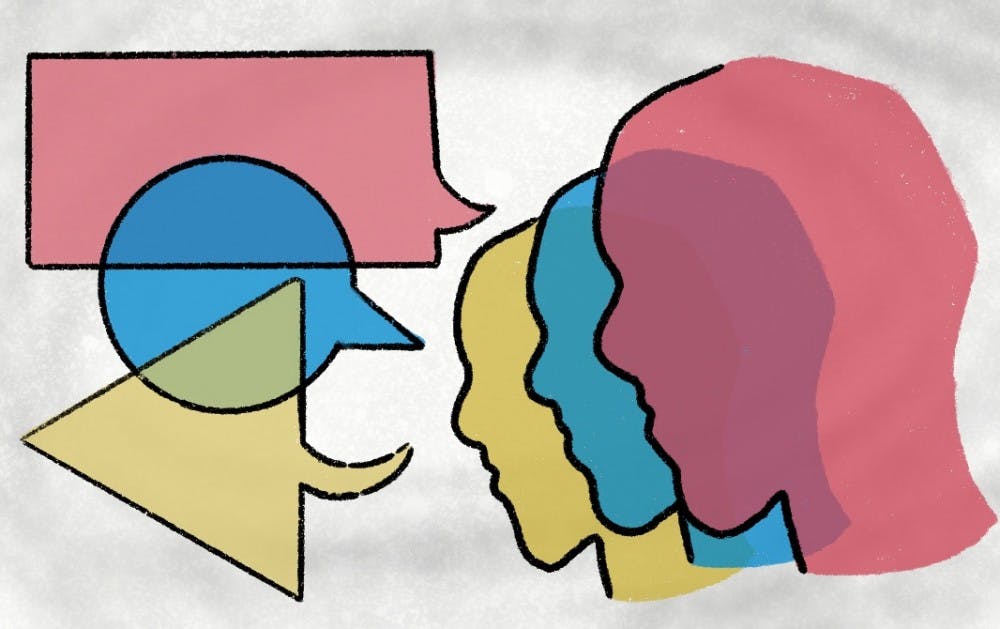Accountability seems to be the theme of the week in regards to the political, academic and social controversies that have recently taken place.
Maintaining accountability in the White House or within our own University has become less of an expectation and more of a reactionary response.
Opinion columns this week have ranged from calling on Sarah Huckabee Sanders to do her job as White House press secretary to highlighting a recent controversy at ASU involving its economics department.
With accountability in mind, seeing where these issues lead will show how press secretaries, public universities and others deal when placed between a rock and a hard place.
Meet the Press? Don’t Bother | By Michelle Cottle
One of the more mind-boggling examples on accountability is the White House press secretary's disregard for transparency and factual information. This trend is commonplace within the current administration, but that does not mean we must sit back and watch it happen, especially as high stakes issues continue to surround President Donald Trump and his time in office.
On the contrary, calling out Sanders and seeking change is the clear first step here. Will it be the solution to this clearly problematic official? Probably not. Yet, there is still an opportunity to express frustrations regarding the situation.
As Cottle wrote in her column, "In Ms. Sanders’s case, the growing lack of access is arguably less troubling than the lack of credibility — a problem highlighted in last Thursday’s release of the Mueller report."
ASU grading uproar points to a wider issue with educational apps | By Joanna Allhands
Following the on-campus and social media responses to an ASU economics professor's email regarding what he claims were unethical practices by the University, students sounded off on their experience with different online homework and learning systems.
The additional cost and increased importance of these systems rubbed some people the wrong way. But personally, this didn't seem like a problem until I realized the large influence these apps play in my academic life.
In my economics and language courses, the systems were significant to the curriculum and learning aspects of the class. It created a self-sufficient learning experience that may not be beneficial to every student, which is cause for concern.
It’s time to call out Disney — and anyone else rich off their workers’ backs | By Abigail Disney
Although this may not pertain directly to college students, recognizing that even Walt Disney Co. must be held accountable is important for some that may only focus on the fond memories the company's films bring about.
Instead, people need to focus on the pay given to thousands of workers. It may not just be Disney, but this is one example of large companies growing and thriving without recognizing the struggles their employees face — and how much of a role they directly play in that.
The columnist provides a way forward for the company, and wrote, "here is my suggestion to the Walt Disney Co. leadership. Lead. If any of this rings any moral bells for you, know that you are uniquely situated to model a different way of doing business."
Elizabeth Warren’s tuition plan is too good to be true | By Antony Davies and James R. Harrigan
As much as I would like to defend Sen. Elizabeth Warren's (D-Mass.) plan to cut student loan debt for millions, this is simply not feasible without giving up something in the long run. Debts aren't simply forgiven. In fact, the plan would just seek an alternate source for the money, which the column states would be from taxpayers themselves.
Again, in a perfect world, public education would be free and student debt would not overwhelm so many college students before and after graduation. Yet, the plan is clearly one that defers responsibility and lacks a real solution to the problem.
When we can hold institutions accountable, make college affordable (or even free), and create real, feasible solutions to college debt, only then may attending college not mean piling on stacks of bills.
Air Pollution Standards | Vijay Limaye
One of the best examples of people's lack of accountability is the environment. Air pollution is just one of the many issues facing our environment and our expectations for air pollution standards (and how to uphold them) say a lot about our accountability for a better planet.
As calls for change in how countries and citizens work to protect the Earth, it is just as important to oversee and maintain strict standards and limits. It's an issue that goes beyond traditional geographic boundaries and instead affects everyone in the world collectively.
As Limaye wrote in the column, "stronger air pollution limits will benefit the health and welfare of millions of Americans and also help mitigate the global climate crisis."
Reach the columnist at mfoxall@asu.edu and follow @mayafoxall on Twitter.
Editor’s note: The opinions presented in this column are the author’s and do not imply any endorsement from The State Press or its editors.
Want to join the conversation? Send an email to opiniondesk.statepress@gmail.com. Keep letters under 500 words and be sure to include your university affiliation. Anonymity will not be granted.
Like The State Press on Facebook and follow @statepress on Twitter.




